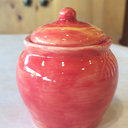Antiphospholipid antibody profiles in lupus nephritis with glomerular microthrombosis: a prospective study of 124 cases.
Λέξεις-κλειδιά
Αφηρημένη
BACKGROUND
Glomerular microthrombosis (GMT) is a common vascular change in patients with lupus nephritis (LN). The mechanism underlying GMT is largely unknown. Although several studies have reported the association of antiphospholipid antibodies (aPL) with GMT, the relation between GMT and aPL remains controversial. Previous studies have demonstrated that some aPL could bind to several hemostatic and fibrinolytic proteases that share homologous enzymatic domains. Of the protease-reactive aPL, some can inhibit the anticoagulant activity of activated protein C and the fibrinolytic function of plasmin, and hinder the antithrombin inactivation of thrombin. The purpose of this study was to investigate the prevalence of GMT in LN patients and examine the relation between the aPL profiles (including some protease-reactive aPL) and GMT.
METHODS
Renal biopsy specimens were examined for the presence of glomerular microthrombi. Plasma samples from 25 LN patients with GMT (LN-GMT group) and 99 LN patients without GMT (LN-non-GMT group) were tested for lupus anticoagulant and antibodies against cardiolipin, beta2 glycoprotein I, plasmin, thrombin, tissue plasminogen activator, and annexin II.
RESULTS
The prevalence of GMT in LN patients was 20.2%. Compared with the LN-non-GMT group, the LN-GMT group had an elevated systemic lupus erythematosus disease activity index; elevated renal tissue injury activity and chronicity indices; elevated serum creatinine, blood urea nitrogen, and proteinuria levels; a lower serum C3 level and much intense glomerular C3, C1q staining; and a higher frequency of hypertension (P < 0.05 for all). Additionally, the detection rate of lupus anticoagulant, immunoglobulin G (IgG) anti-beta2 glycoprotein I and anti-thrombin antibodies were higher in the LN-GMT group than in the LN-non-GMT group (P < 0.05 for all). No statistical differences were found in the detection rates of IgG anti-cardiolipin, plasmin, tissue plasminogen activator, or annexin II antibodies (P > 0.05 for all). No detectable difference in IgM autoantibodies to the above antigens was observed between the two groups.
CONCLUSIONS
GMT occurs in approximately 20.2% of LN patients. Patients with GMT have severer renal tissue injuries and poorer renal functions than patients without GMT. The lupus anticoagulant and antibodies against beta2 glycoprotein I and thrombin may play a role in GMT.




